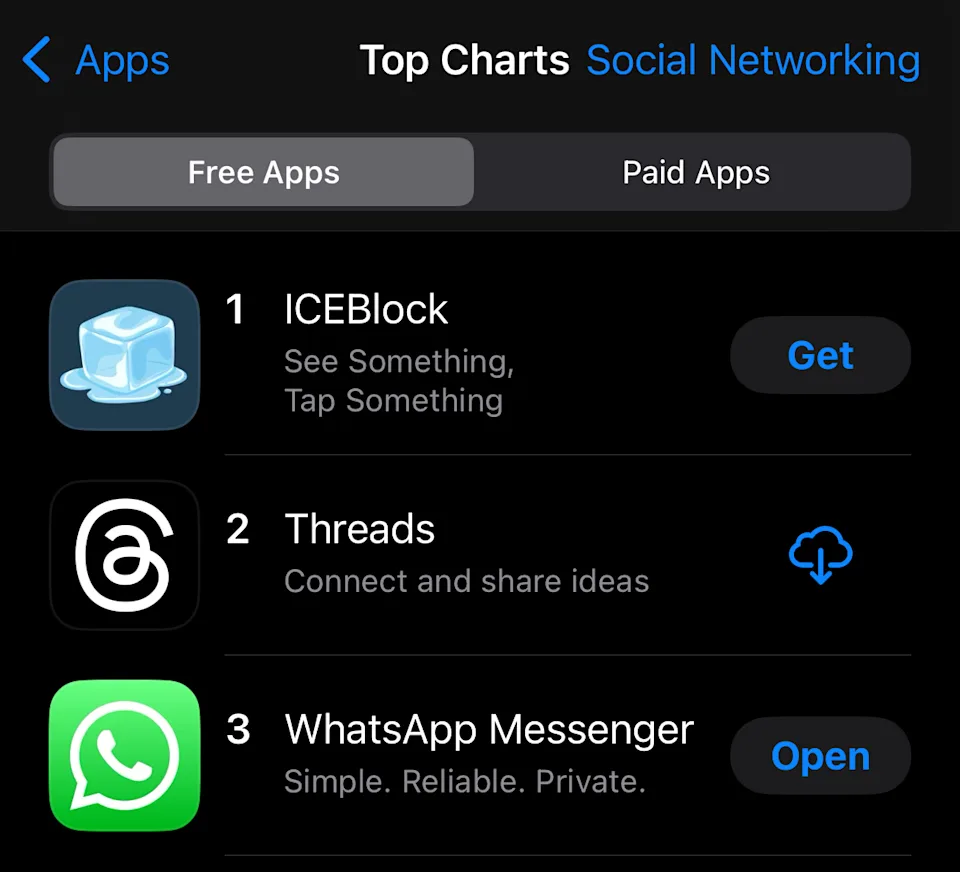Controversial Privacy App Gains Popularity Despite Criticism from Authorities
The Unexpected Rise of ICEBlock
In a surprising turn of events, ICEBlock, a privacy-focused mobile app that promises to “block government surveillance,” has skyrocketed to the #1 spot on the Apple App Store and Google Play Store. This surge in downloads comes just 48 hours after multiple government officials publicly criticized the app, calling it a “dangerous tool” that could “undermine national security efforts.”
The app, developed by an anonymous team of programmers, markets itself as an “anti-tracking shield” that encrypts user data and blocks location tracking, facial recognition, and other surveillance technologies. Its sudden popularity appears to be fueled by a mix of privacy concerns, anti-government sentiment, and the Streisand Effect—where attempts to suppress information only make it more widely known.
Why Are Officials Worried?
Several high-profile figures have spoken out against ICEBlock:
- Sen. Mark Reynolds (R-TX): “This app is a dream come true for criminals and terrorists. It deliberately obstructs lawful investigations.”
- FBI Cyber Division Head Lisa Monroe: “We’re seeing increased use of ICEBlock in organized crime operations. Its encryption cannot be legally bypassed.”
- EU Data Protection Board: “While privacy is important, complete anonymity tools can enable illegal activities.”
Despite these warnings, downloads have increased by 850% since the criticism began.
What Does ICEBlock Actually Do?
According to its developers, the app offers:
✔ Real-time tracking jamming – Makes your phone “invisible” to surveillance cameras and stingrays.
✔ End-to-end encrypted messaging – No metadata collection.
✔ Fake data generation – Sends false location pings to confuse trackers.
✔ Police detection alerts – Warns users of nearby law enforcement checkpoints (a feature that particularly angered officials).
Security experts are divided:
- Supporters say ICEBlock fills a critical need for activists, journalists, and citizens in oppressive regimes.
- Critics argue it could be abused by criminals, human traffickers, and violent extremists.
The Streisand Effect in Action
The backlash from authorities has only fueled public curiosity. Social media trends like #DownloadICEBlock and #WhoWatchesTheWatchers have gone viral, with many users citing recent scandals involving government overreach as motivation to install the app.
“When politicians tell me not to use something, that’s when I know I need it,” tweeted one user, summing up the sentiment.
What’s Next?
- Legal Challenges: The DOJ is reportedly exploring ways to force Apple and Google to remove ICEBlock from their stores.
- Copycat Apps: At least three similar tools have already appeared in wake of ICEBlock’s success.
- Tech Giant Response: Apple has not commented, but Google is reportedly reviewing whether the app violates its terms of service.
Conclusion: Privacy vs. Security Debate Reignited
ICEBlock’s rapid ascent highlights growing public distrust of surveillance—and the unintended consequences of officials trying to suppress technology. Whether the app stays available or gets banned, one thing is clear: The demand for privacy tools is higher than ever.
Will you download ICEBlock? Or do the risks outweigh the benefits?






